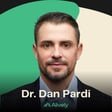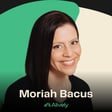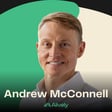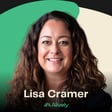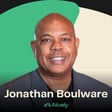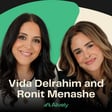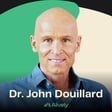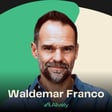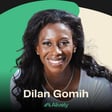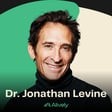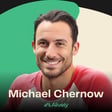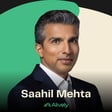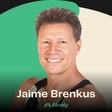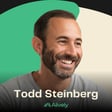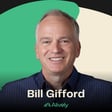
How A Plant-Based Diet Can Heal You with Dr. Matthew Lederman - E49
Feeling frustrated by the endless cycle of prescriptions, procedures, and fleeting diets? Many people find that traditional approaches only mask symptoms instead of addressing the root of the problem, leaving them tired, discouraged, and searching for lasting solutions. This episode sheds light on how rethinking your relationship with food - particularly by embracing a whole-food, plant-based diet - can unlock real improvement in energy, digestion, and overall well-being.
Dr. Matthew Lederman is a board-certified internal medicine physician and recognized leader in the fields of nutrition, lifestyle medicine, and mind-body integration. Best known for his appearance in the Forks Over Knives documentary and co-authoring several influential books, Dr. Lederman combines conventional medical training with deep expertise in whole-food, plant-based nutrition and emotional well-being. He holds certification in Nonviolent Communication and is one of the few physicians to have completed the rigorous four-year training process in that discipline. He is the co-creator of the Webe Kälm device, and co-host of the webe Pärents podcast, where he works alongside his wife Dr. Alona Pulde to help families cultivate connection and build resilience.
“It's not a lack of these specific nutrients. It's a lack of whole foods and too much processed [food] and too much animal foods that's making people sick.” - Dr. Matthew Lederman
In this episode you will learn:
- Why Dr. Lederman considers physical sensations and felt experience essential for optimizing health, and how he encourages fluency in communicating with your body’s signals.
- The journey that led Dr. Lederman from conventional medicine to a focus on plant-based nutrition, practical ways he transitioned his diet, and how he helped patients make sustainable changes.
- Approaches to nutrition that emphasize abundance rather than restriction, with specific details on Dr. Lederman’s own daily regimen and views on protein, supplementation, and processed foods.
- The importance of flexibility, balance, and consistent daily movement for long-term health, plus strategies for incorporating effective stretching and bodyweight routines into a busy life.
- How chronic stress, nervous system regulation, and emotional connection impact overall well-being - and why connections with others are as vital to health as diet or exercise.
- Practical tools for self-regulation and sleep, including Dr. Lederman’s work with the Webe Kälm device and why establishing routines of physiological safety is foundational for both adults and children.
Resources
- Connect with Dr. Matthew Lederman on Instagram: https://www.instagram.com/theconnectiondocs/
- Learn more about his offerings at Connection Docs: https://www.connectiondocs.com/
- Listen to the podcast he co-hosts, "webe Pärents": https://open.spotify.com/show/41fJGgev0Md7ingDYzJ8td?si=Ara6rkDbQjuRzFLYTPvQ0g&nd=1&dlsi=0ce90442e36044a5
- Shop all the products Dr. Lederman mentions in this episode: https://alively.com/products/matthew-lederman
This podcast was produced by the team at Zapods Podcast Agency:
https://www.zapods.com
Find the products, practices, and routines discussed on the Alively website:
https://alively.com/

